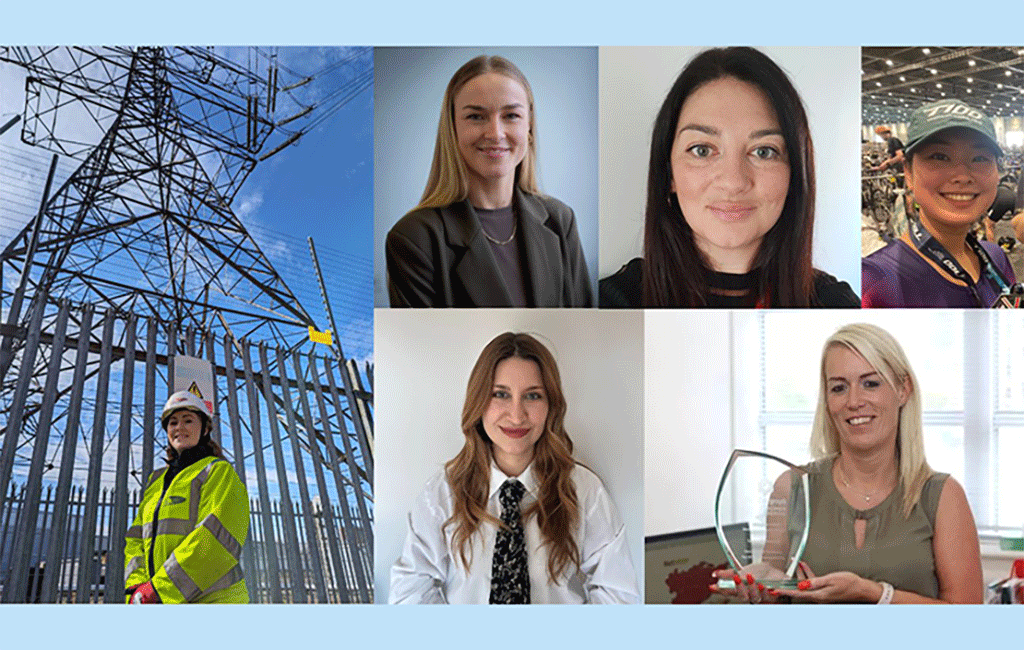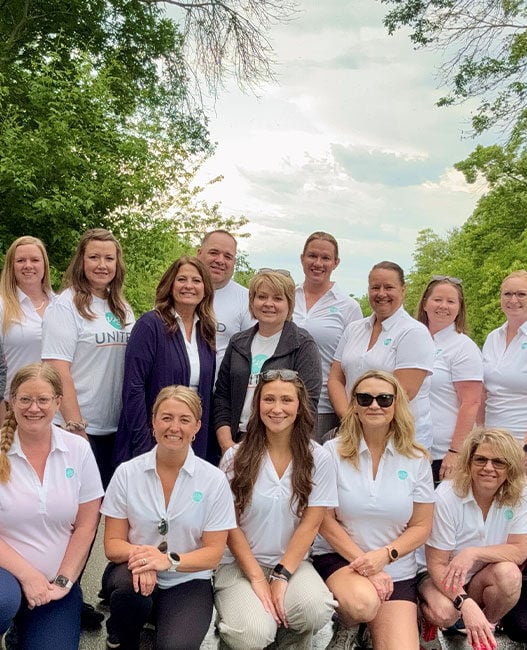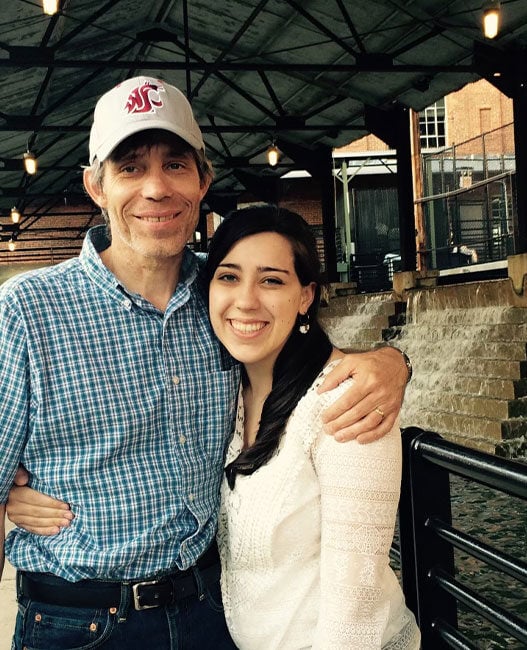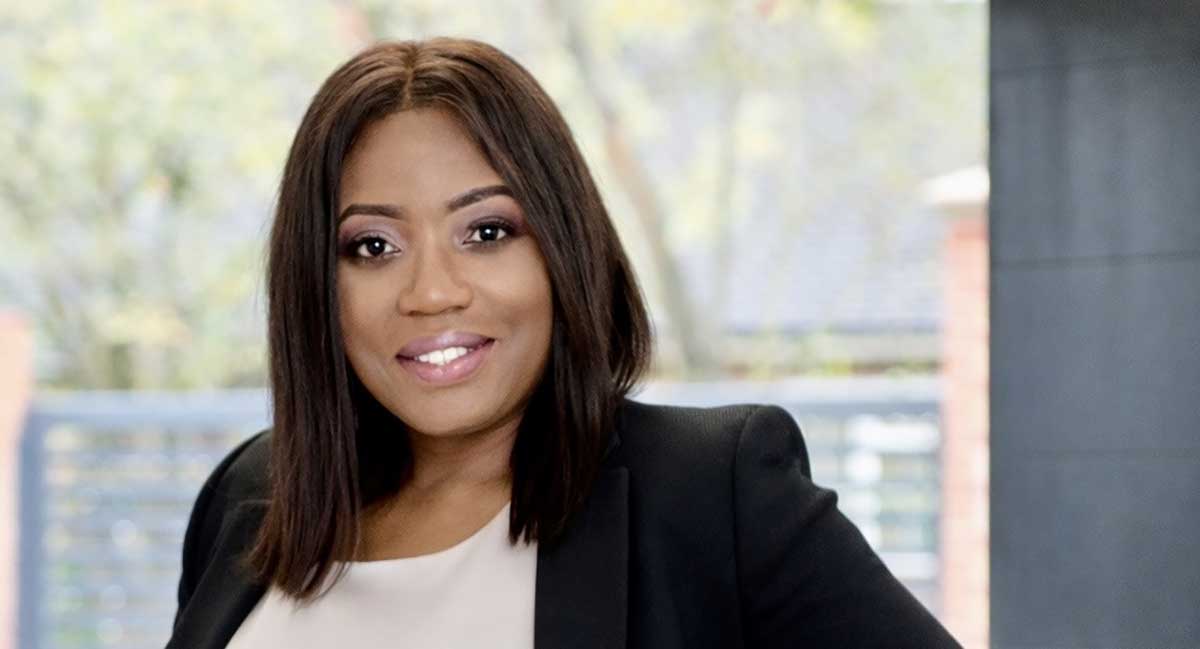Trailblazers Samantha Burchell, Emma Christensen, Hilal Ozdemir, Georgia Edwards, Nene Yamsaki, and Claire Sheridan all work at UK Power Networks, each in part responsible for keeping the power flowing for London, the East, and South East.
In the run up to International Women in Engineering Day on 23rd June, they are applauding female engineers and encouraging more young women to pursue STEM careers:
Crawley and Brighton area manager Samantha Burchell worked her way up from back-office to leading electricity network field operations. She recently kept the power flowing when a 65-foot sink hole appeared in a residential road in Godstone
Recognised among the UK’s Top 50 Women in Engineering, she inspires her team with her can-do approach and passion for the work. She heads a management team of nine, plus 22 field engineers, and 95 field staff including cable jointers and linespeople.
She said: “I love my job, love what I do every day, and I am very passionate about my role. My work gives me great satisfaction, and I encourage any woman thinking of joining engineering roles to grasp the opportunity and go for it. It is hard work, but the years of study and long hours pay off.”
Emma Christensen from Suffolk was the first ever female 132,000-volt control engineer for UK Power Networks and is now the UK’s only female emergency planning manager in the sector. She monitors weather fronts which could damage the 190,000km of power lines and scans the horizon for other potential risks. The role is 24/7 during major incidents.
Her son is three years old, and she said: “You have to juggle to get the balance right; I’m constantly learning what works well and what doesn’t and this will change as my son gets older. I also have a supportive family and my best advice for women is do what works for you, be honest and open, and be yourself.”
Nene Yamasaki leads AI and digital projects for the company in London. After growing up in Japan, aged 15 with limited English Nene started three years at a UK boarding school then graduated from the University of Cambridge with a Master’s degree in Chemical Engineering. Using her technical skills at UK Power Networks she created a new app which has identified over 200 cables to repair, saving over £10 million and 17 million minutes of power cuts over five years.
Her team has over 50% women and she encourages more women to join the utilities sector. One of the company’s directors said: “What I love about Nene is her ability to see solutions from a different perspective and her courage to say it as she sees it, no matter who she is working with at all levels of the organisation.”
New Zealand-born Georgia Edwards is driving change in the UK’s green energy landscape. In under a year, she has expanded the market for energy flexibility which is helping to shape the clean energy revolution. She created guides, hosted engagement
sessions, and led webinars so that more councils and community groups could integrate flexibility into their energy and Net Zero plans.
Her work makes clean energy more accessible, cuts fossil fuel reliance and lowers consumer costs. In a year, Georgia helped secure 44MW of newly contracted flexibility – enough to power 142,000 homes for an hour.
Her manager said: “The Net Zero transition is a difficult challenge that requires creative problem-solving, cross-sector collaboration, and the determination to get things done – all attributes that Georgia has demonstrated. I can’t wait to see what she will achieve in the next few years.”
On UK Power Networks’ graduate scheme, Hilal Ozdemir has published impactful research and promoted diversity in engineering. She manages collaborations with four universities, helping them use UK Power Networks’ open data.
Hilal also works with universities to address issues faced by students, ensuring a more inclusive and supportive learning environment. She has been involved in the We Power initiative aimed at increasing women’s employment in engineering by highlighting barriers women face in STEM fields and is helping to pave the way for future generations of female engineers.
Her manager said: “Hilal impressed me from the beginning. She approached UK Power Networks’ Distribution System Operator with a series of complex and challenging data requests, to enable her PhD research. She was amenable to feedback and worked with me to shape what the data might look like.”
Electrical engineer Claire Sheridan from Derry, manages the company’s London Capital Investment projects, after starting at the company a decade ago as the only woman in a team of 30.
Now she is surrounded by an ever-increasing number of female engineers delivering huge infrastructure projects. She said the increase in female colleagues is not “a story of progress, allyship, and the power of deserving talent.”
Claire, who oversees more than £600 million worth of infrastructure projects,
said: “I believe in women succeeding because they are inherently deserving, not as a mere exercise in diversity. We bring unique perspectives, skills, and problem-solving abilities to the table, and these contributions must be recognised and valued for their merit.”
Claire was highly commended in the Inspiring Women in Construction and Engineering Awards 2024 for complex projects which energised new bus fleets and rapid EV charging.
Dr Laura Norton, head of Equality, Diversity and Inclusion at the Institution of Engineering and Technology, said: “Building an inclusive culture that inspires, engages and celebrates the diversity of colleagues and the wider engineering and technology community means that everyone can fulfil their potential. We know that systemic and institutional barriers exist, but it’s important that we act to change this, removing these from the sector so that everyone can feel included and can succeed.
“Engineers develop products and services for everyone – so the industry needs to be representative and diverse as this leads to creativity, innovation and collaboration which are the vital skills needed to engineer a better world.”














